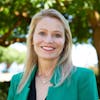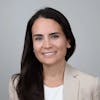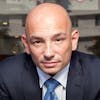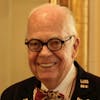Female Founders in Hospitality - Nina Kleaveland, Lanyard

Nina Kleaveland is the founder of Lanyard as well as the founder of Female Founders in Hospitality - which today, August 18, turns 1 year old. In this episode, she shares her career journey, as well as more about Female Founders in Hospitality and how it might help you.
- Follow Nina on LinkedIn
- Learn more about Nina's company, Lanyard
- Follow Female Founders in Hospitality on LinkedIn
Join the conversation on today's episode on the Hospitality Daily LinkedIn page.
Hospitality Daily isn't just a podcast! Every morning - Tuesday through Friday - I summarize the stories you need to know as a hospitality professional in a short email. Read today's issue and subscribe here.
Josiah:
Do we need more startups in hospitality? Our guest today has seen it all, and in this episode, you'll learn why. She is not only building a new company in hospitality but started an organization to help other founders build the next wave of companies that will shape the future of what hospitality looks like.
Whenever I hear someone's name or company come up again and again with the people I speak with, I try to bring them on the show, and that's certainly the case with our guest today. Nina Kleaveland is the founder of Lanyard, as well as Female Founders in Hospitality, which today, August 18, turns one year old. Today she shares more about this and how it might help you, but we start off talking about her career journey that gives her perspective and experience to do the work she does today.
Nina:
First of all, thank you so much for having me. I'm a huge fan. I've seen many of the previous episodes with some of my fellow female founders which makes me so excited and a ton of other leaders across the industry. My career in hospitality started at a hotel in Philadelphia. I actually wanted to go into event planning right out of college and so started working at the West End in Philadelphia, first at the front desk and in human resources. I spent the first three weeks with a draw and shredding paper and then from there I had the benefit of a mentor. The general manager of the hotel was Tina Edmondson. She is now at Marriott leading global brands, and she really took an interest in me and helped me navigate to the next role. That happened to be in a newly forming team doing digital marketing. I transitioned into field marketing by supporting a portfolio of hotels across the Mid-Atlantic in the West, working for an incredible female leader, Lori Strasberg, who's now at Preferred Hotels. There's a theme here. It's a small industry and everybody knows each other. That was really my first foray into marketing and I loved it. I loved the data-driven aspects that you could deploy a campaign and see results coming in real-time. I had taken a marketing class in college and actually didn't really enjoy it at all. I was surprised to find out that this was a combination of creativity and analytics and I really enjoyed that. I did that for about two years and wanted to move to the Starwood corporate office. I ended up taking a role doing loyalty partnerships. I was supporting Starwood for a guest and managing the relationships with various sports and loyalty redemption platforms and different partners to help support the value proposition of the loyalty program to SPG members. Once again I had the benefit of an incredible boss and mentor, Paulo Peña. He really encouraged me to think about business school as the next step in my career. He had gone to HBS and suggested I look at a number of different schools and think about that as a step. That led me to Wharton, and he was the second person I told when I got in. I was just so excited about that next step in my journey. I had been a biology and French major. I knew nothing about business and yet was somehow in the business world. I ended up spending two years at Wharton before moving to American Express and I ended up taking a role out in Hong Kong with them. My husband and I moved abroad and I worked for American Express in B2B marketing and partnerships, supporting a local sales team. In that role, I was oftentimes in meetings 60-person meetings where I was the only person who didn't speak Cantonese. It was a really fascinating experience, so culturally different, many challenges, but at the same time just gave me a really interesting perspective of what it was like to work in a market-level office Not a regional office, not a headquarters, but a small market level office where you really have to make a lot of noise for somebody to pay attention to what you're doing. After about three years and traveling to 19 different countries, I think the only country we hadn't been to was Mongolia and we decided it was maybe time to come back, so we moved back to New York and I worked briefly for American Express in a loyalty role and then ended up joining Wyndham Hotels and Resorts. It was an interesting time for Wyndham. They were really investing in their brands and loyalty program and I was brought on to lead their partnerships team, so the Co-Brand Credit Card Business, which was a significant revenue driver, as well as their other loyalty partnerships. I did that for a couple of years and then ended up transitioning over to building out a corporate strategy function for them and that was a new function. It had mostly been run by finance previously. So essentially was looking at different evanay and investment opportunities, doing some internal consulting, competitive landscaping, and looking at the market overall and hospitality trends and the impact on Wyndham's portfolio. So it was a great experience. Had the opportunity to work with some tremendous leaders across the organization and really get a view into all different parts of the company and hospitality that I hadn't seen before being sort of in loyalty partnerships and marketing, and I think that set the foundation for me to be able to go and start my own company. I'd always wanted to do something entrepreneurial.
Josiah:
I wonder, if we talk about Female Founders in Hospitality, maybe starting out with just kind of at the very highest level, I'm curious why, in your view, we need new companies in hospitality. We talked a little bit about your career journey and you worked at these very large organizations, whether it's American Express or Wyndham, that have tremendous amounts of capital, talent, technology, seemingly like unlimited resources to go and do interesting things. Why do we need new companies, especially within the ecosystem of hospitality?
Nina:
So if I think about the problem that I'm solving, I look at the employers that we work with. They're solving it on an individual basis, right for their market or their portfolio or hotels, and doing the best that they can with limited resources. The benefit that we bring is that we have a view across all of the employers, across so many different industries and we can take that knowledge and that expertise and build a solution that works for everyone. Right, and so that's why I think it's harder for an individual company to do something that's going to benefit the entire industry versus some of these amazing, scrappy, lean startup builders and founders who are tackling the industry's problems and challenges, and so I think that there's always going to be a place for startups and we need that combination of both startup and small, medium, large companies across the industry to keep us moving forward.
Josiah:
I think the business you're building, lanyard, is a great example of that because you're connecting threads of things that you've learned across your own career journey to solve an acute problem for the industry at large right. So we'll encourage people to check out what you're doing at Lanyard. But in addition to that, you're also the founder of female founders in hospitality and I imagine you know part of the reason for you starting. That was many of the reasons you said startups should exist, but I guess why specifically did you start female founders in hospitality in the way that you did?
Nina:
So it was really self-serving. I'm going to be honest, I'm a joiner, I'm a social being, although also an introvert, strangely and I joined a bunch of different networks and forums and founder groups. When I first started my company, Lanyard, I was looking for my people and I just got a little bit out of each thing but didn't kind of find that community that I felt really at home, like I could be myself and like I could sort of go and talk about the challenges of the day and feel renewed and focused and energized. And so last year was our first meeting of female founders in hospitality, or 15 of us representing real estate developers, services, businesses, travel, tech, and a number of other different types of businesses, all addressing and focused on the travel industry. And we met for the first time on Zoom. Our members are global and there was something special. It was really good, despite the fact that it was just like introductions and sort of tell me about your business. There was something special there. And then fast forward to a year later and we have every call. Almost every single one of those founders still participates. We have this incredible group. We're up to four cohorts. We're building a fifth. We are more global than we were when we first started, and what started is like a small network, a self-serving network to help me navigate this journey and provide support for me on this journey, has turned into a movement. It's women supporting women. I wouldn't go so far as to say that we're sort of Taylor Swift levels of women supporting women and going out and you know, or Barbie, but it's pretty incredible what these women are doing for each other in terms of nominating each other for awards, offering resources, contacts, advice, suggestions, introductions so many different things, just support on LinkedIn and other social media channels and in a world where, as a female founder, I'm going to quote the statistics everybody quotes but I think it's important to reinforce them when only 2% to 3% of VC dollars go to female founders and 21% of the investors, the VCs that they're pitching, are women, and the stages across the industry are populated by a majority of men. These women are incredible. They're resilient, they're driven, they're focused and they're doing something really hard, and that, to me, is so empowering. And, going back to what it does for me, it's so motivating. Anytime I'm having a tough day, I think about what all these other women are accomplishing and it's honestly inspiring and it's motivating, and I want to be one of them.
Josiah:
I love it. Can you tell me a little bit more about how the organization is structured and kind of what you offer to members that are participating in this?
Nina:
So the way it's structured is everyone is part of it. The cohorts are about 15 founders and they meet monthly on Zoom so we can incorporate all different geographies and time zones. In addition to that, we have a Slack channel where there's a constant dialogue of questions and ideas, and posts. Our members get together at various events and we're working on so much more to come. I'm so excited about the future, but we're working on activations with various conferences where our members have a tendency to participate or speak or attend, and then from there we're starting to put together content that is coming directly from our members, and there's just so much more that we can do with this incredible group. We're constantly growing. New people are always welcome to join. Our criteria to join are basically that you're building a company in the travel space and that you're a female founder. It's free. I know what it feels like when you need a community and you're building and you don't want to be put on a waitlist for six months. You don't want to be told it costs thousands of dollars to get in, and so so much of what this is. It was just shaped by my own experiences.
Josiah:
That's great. One of our mutual friends, Rachel Vandenberg, was saying this is such an incredibly diverse group of really interesting people and maybe to bring that to life for our listeners, can you tell me a little bit about some of the types of founders that are joining?
Nina:
Yeah, so we have such a range. So there are women who are building marketing services companies, legal services, and revenue management services, who have years and years of experience in the industry and are incredible experts. We have women who are buying real estate and it could be branded some independent hotels, which it's a tough journey, even harder as a woman but they are sharing stories and advice and recommendations for investors and underwriting and so many things. We have travel tech for short-term rentals, founders who are figuring out ways to monetize everything and anything that comes with the short-term rental or deliver it as a concierge service to a short-term rental. We have a short-term rental platform that enables hosts to more easily distribute their inventory onto all different websites. We have travel products. We have the list that just goes on and on. I mean there are just so many incredible businesses started by these women that, as I said, they bring their expertise from hospitality but from so many other industries, and so that's also what makes it really special. We don't curate the groups in any way, shape or form. It's just a function of you know, when you get in touch, that we put the groups together, but you might have a real estate owner combined with some services you know services founders combined with travel tech, combined with someone doing data and AI in the industry and they all bring their perspective around what they're building and sort of past experiences to that conversation.
Josiah:
I think that's so powerful because there's so much benefit just to get a group like this together. But specifically the cohort format I think amplifies that opportunity right and I know Rachel and others have really appreciated being a part of that community. You spoke to some of the impacts. You know information, sharing their support in a lot of different ways. You know kind of both like just it's hard to build a new company and then you kind of think about the different challenges that you're facing as you're building. Having that community is so powerful. I wonder if you could speak a little bit to the impact that you hope to provide for the industry as a whole through this. It seems like there's something special that you're creating here, but I'm curious as you kind of think, a few years down the road, what would you like to see as a result of this community building and growing together?
Nina:
What we're looking to do with Female Founders in Hospitality is really raise awareness of the companies and the founders and the incredible work that they're doing and help support them on their journey to help make them successful. And so we're doing that through so many things today. And there's so many more things we can be doing adding in allies and mentors and advisors and investors and showcasing the content that they produce right and positioning them as experts or helping put them on stages, and so there's so many things we can do. All of that is really with the goal of seeing more female founders in the industry, more dollars going to those female founders, and more of our more females on our industry stages across conferences and events.
Josiah:
It's so exciting. Where can people go to learn more?
Nina:
So visit our LinkedIn page, and that has a number of posts, as well as the application for female founders and hospitality.
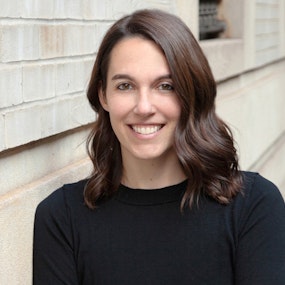
Nina Kleaveland
CEO & Co-founder, Lanyard and Founder, Female Founders in Hospitality
Nina Kleaveland is the co-founder and CEO of Lanyard, a tech platform that helps employers find and manage workforce housing. Nina is also the founder of Female Founders in Hospitality, a network and platform that supports women building companies in the travel industry.
After graduating from the University of Pennsylvania, Nina started her career in hotel operations at The Westin Philadelphia. She moved to a digital marketing role at Starwood Hotels & Resorts and from there to managing partnerships for Starwood Preferred Guest, the loyalty program.
In 2009, Nina left Starwood to pursue and MBA at The Wharton School at the University of Pennsylvania. After graduating, she moved to Hong Kong to work for American Express in B2B marketing and partnerships.
Nina moved back to the United States in 2014 and transitioned back into hospitality. At Wyndham Hotels & Resorts, Nina built a portfolio of global partnerships and led corporate strategy.
Nina lives in New York with her husband and two girls. She is on the Advisory Council of The Johns Hopkins Center for Talented Youth and Advisory Board of the Penn Arts & Sciences Professional Women's Alliance.
Most Popular Episodes
Check these out:







